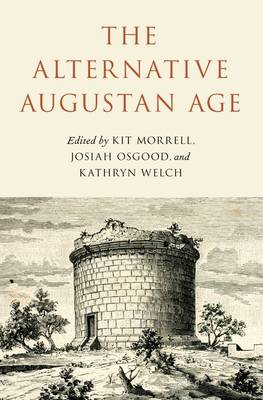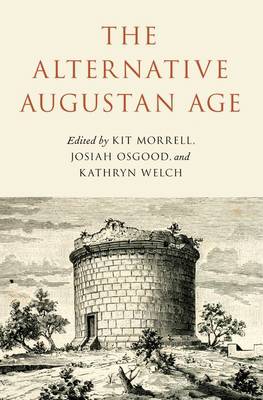
Je cadeautjes zeker op tijd in huis hebben voor de feestdagen? Kom langs in onze winkels en vind het perfecte geschenk!
- Afhalen na 1 uur in een winkel met voorraad
- Gratis thuislevering in België vanaf € 30
- Ruim aanbod met 7 miljoen producten
Je cadeautjes zeker op tijd in huis hebben voor de feestdagen? Kom langs in onze winkels en vind het perfecte geschenk!
- Afhalen na 1 uur in een winkel met voorraad
- Gratis thuislevering in België vanaf € 30
- Ruim aanbod met 7 miljoen producten
Zoeken
Omschrijving
The princeps Augustus (63 BCE - 14 CE), recognized as the first of the Roman emperors, looms large in the teaching and writing of Roman history. Major political, literary, and artistic developments alike are attributed to him. This book deliberately and provocatively shifts the focus off Augustus while still looking at events of his time. Contributors uncover the perspectives and contributions of a range of individuals other than the princeps. Not all thought they were living in the "Augustan Age." Not all took their cues from Augustus. In their self-display or ideas for reform, some anticipated Augustus. Others found ways to oppose him that also helped to shape the future of their community. The volume challenges the very idea of an "Augustan Age" by breaking down traditional turning points and showing the continuous experimentation and development of these years to be in continuity with earlier Roman culture. In showcasing absences of Augustus and giving other figures their due, the papers here make a seemingly familiar period startlingly new.
Specificaties
Betrokkenen
- Auteur(s):
- Uitgeverij:
Inhoud
- Aantal bladzijden:
- 416
- Taal:
- Engels
Eigenschappen
- Productcode (EAN):
- 9780197673652
- Verschijningsdatum:
- 3/03/2023
- Uitvoering:
- Paperback
- Formaat:
- Trade paperback (VS)
- Afmetingen:
- 156 mm x 235 mm
- Gewicht:
- 603 g

Alleen bij Standaard Boekhandel
+ 125 punten op je klantenkaart van Standaard Boekhandel
Beoordelingen
We publiceren alleen reviews die voldoen aan de voorwaarden voor reviews. Bekijk onze voorwaarden voor reviews.









